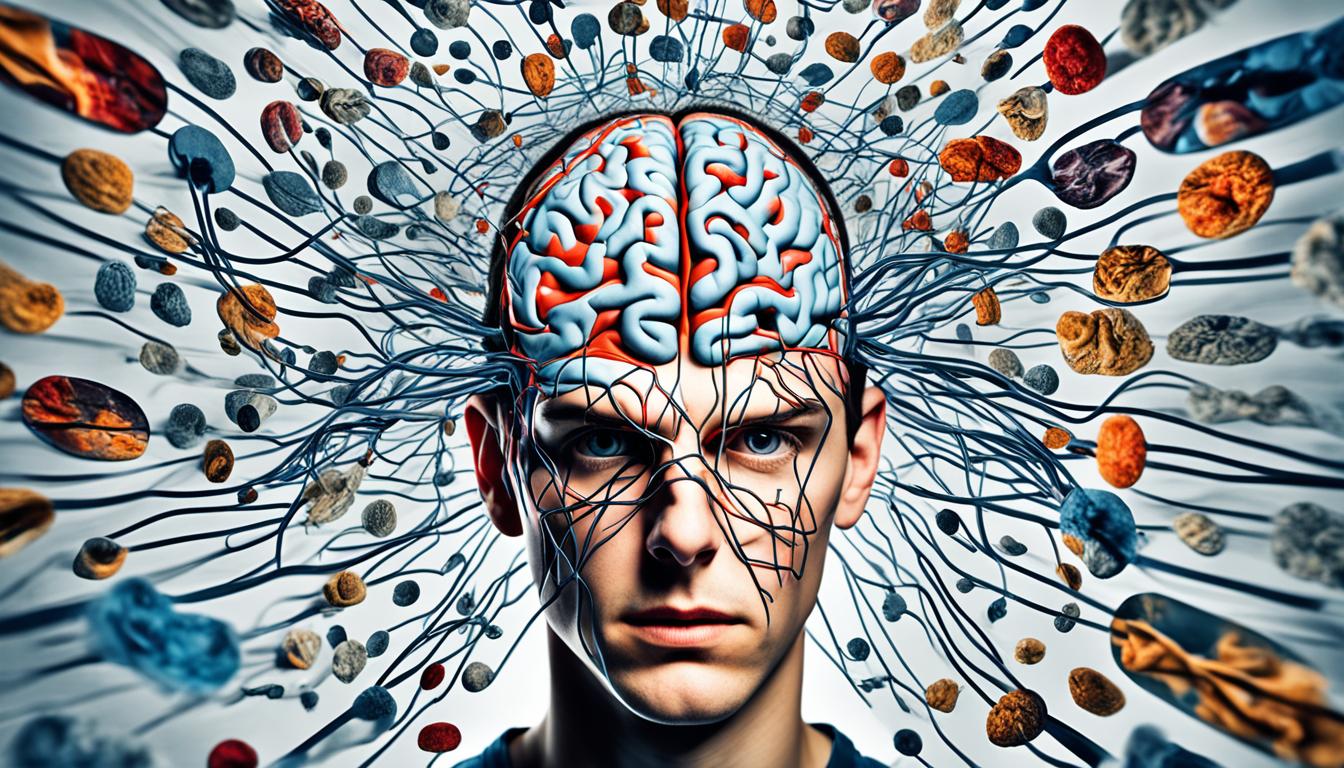Schizophrenia is a serious mental condition that can affect anyone, including kids and teens. If it happens to younger individuals, we call it juvenile schizophrenia or early onset schizophrenia. It shows up with a variety of symptoms that have a big impact on their lives and the people around them.
Children with schizophrenia show symptoms like seeing or hearing things that aren’t there, believing in things that aren’t true, talking and acting in ways that are hard to follow, and not showing much emotion. These signs can be troubling and make daily life difficult for the child.
We don’t completely know what causes juvenile schizophrenia. But, scientists think that a mix of family history and environmental issues may contribute. If someone in your family has the disorder, your risk goes up. Things like problems during birth, exposure to harmful substances, and a lot of stress might also play a part.
Finding out if a child has schizophrenia can be hard because its signs are similar to other conditions, such as autism. But, by looking closely at the child’s medical history, their behaviors, and doing psychological tests, a doctor can figure it out. It’s really important to catch it early. This way, we can start treatments that help more.
Key Takeaways:
- Schizophrenia can impact children and adolescents, known as juvenile schizophrenia or early onset schizophrenia.
- Symptoms in children with schizophrenia can include hallucinations, delusions, disorganized speech and behavior, and decreased emotional expression.
- Genetic and environmental factors are believed to contribute to the development of juvenile schizophrenia.
- Diagnosing juvenile schizophrenia is challenging, but careful evaluation can lead to a diagnosis.
- Early detection and intervention are essential for improving treatment outcomes.
Diagnosing Juvenile Schizophrenia and Managing Symptoms
It’s hard to diagnose juvenile schizophrenia because its signs can look like other issues, like autism. Still, doctors can figure it out by looking closely at the person’s history, current signs, and evaluations. Spotting it early is key to getting the right help and improving how well the treatment works.
Doctors check out a lot of things when figuring out if someone has juvenile schizophrenia. They look at how the person acts, feels, and thinks. Things like if there’s a history of schizophrenia in the family can also provide a clue. And, tests and talks with the patient can give important details about their mind and thinking.
They must also make sure it’s not something else before landing on a diagnosis. Conditions like autism, ADHD, and mood disorders can cause similar signs. A thorough check-up helps pin down the real issue.
Early detection and diagnosis of this illness are key for a few reasons. First, it means getting help faster, which can make the quality of life better and lessen the illness’ effects. Second, it lets doctors create a treatment plan that fits the patient’s exact needs.
Treating juvenile schizophrenia often means using drugs, therapy, and support. Drugs called antipsychotics are often used to control things like seeing or believing things that aren’t real. Various types of therapy can help people learn ways to cope better and get along with others.
Help with school and job training, plus finding community resources, is also important. A big team of experts from different fields often works together to support the patient. This mix of care can really make a difference.
Psychiatrist for Teens with Schizophrenia
Finding a psychiatrist who knows a lot about teens with schizophrenia is critical. These experts get the unique struggles these teens face. They can offer the right kind of help and support.
A psychiatrist who focuses on teens with schizophrenia can help with a lot. They monitor med effects, guide the patient and their family. Their deep knowledge about the illness is key to good outcomes.
Having a skilled psychiatrist means better teamwork among all the experts treating the teen. This joint effort makes for a better plan that covers all the patient’s needs.
In the end, early diagnosis, a full treatment plan, and an expert psychiatrist can make a huge difference. They are the core in making both the illness and the patient’s life better in the long run.
Stem Cell Therapy as a Promising Treatment Option
Stem cell therapy is a bright new hope for treating juvenile schizophrenia. It involves using special stem cells like iPSCs and MSCs. These come from the patient’s own body.
Studies show this therapy might boost brain function and lessen schizophrenia symptoms. It aims to tackle the brain issues behind juvenile schizophrenia.
More research is needed to know if this treatment is truly effective and safe for young patients. But, the early signs are positive. This gives hope to those looking for new ways to help.
This field is growing fast. Stem cell therapy could change how we treat juvenile schizophrenia. It could open new paths to better mental health for young patients.

